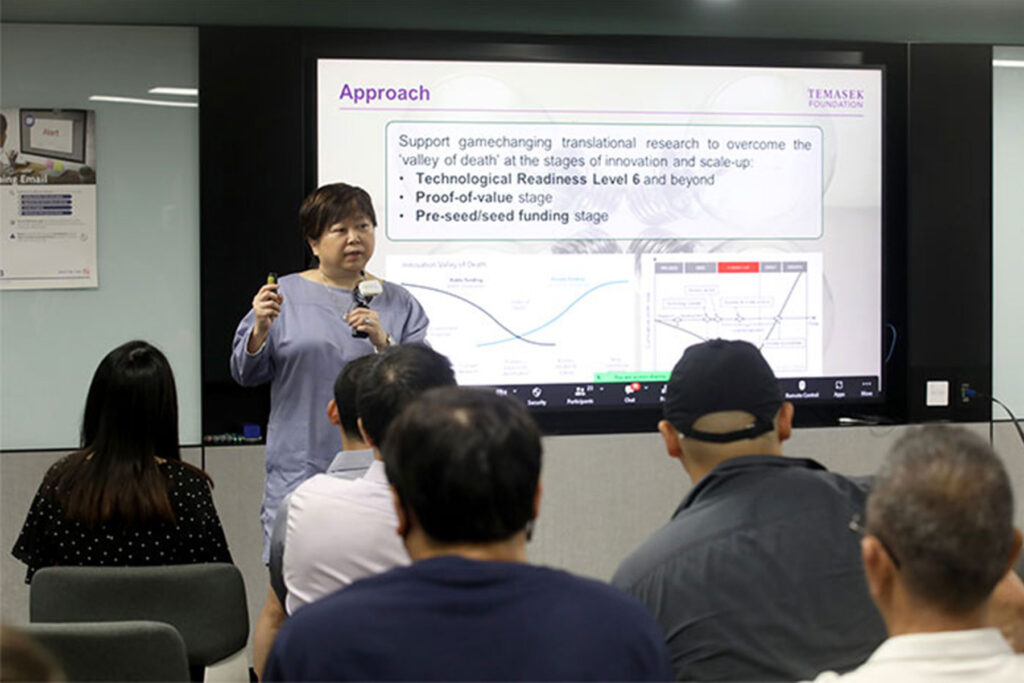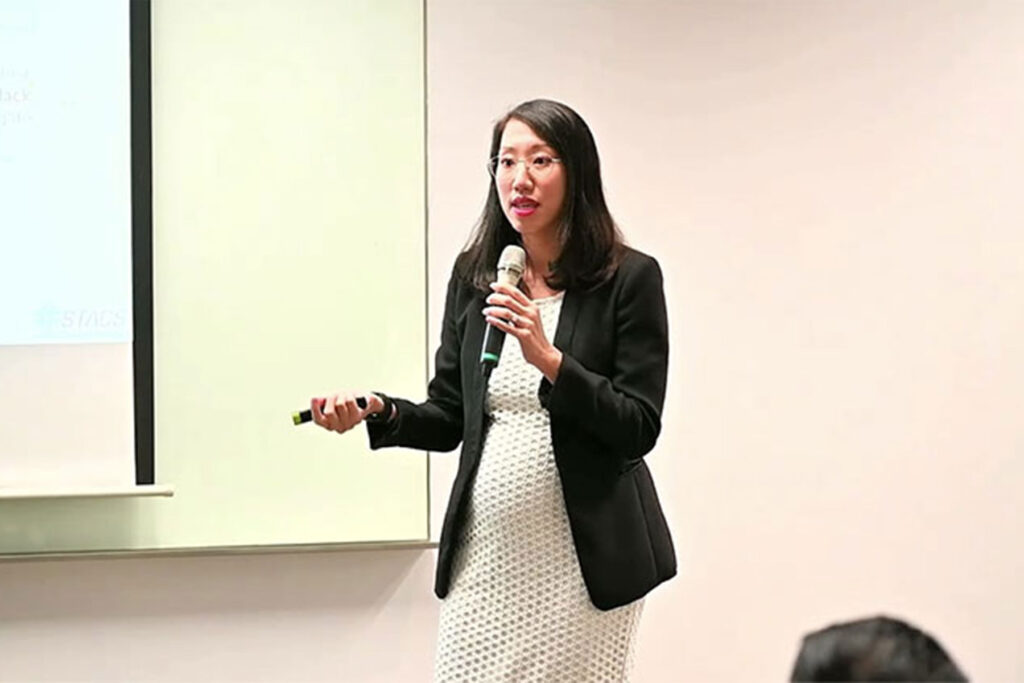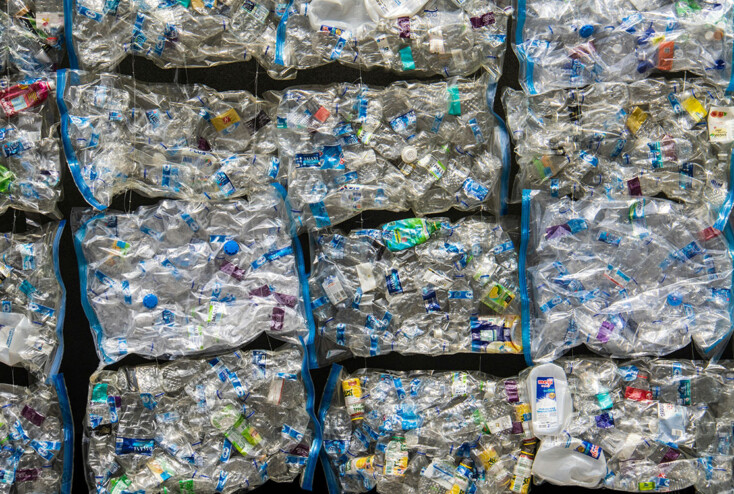
What SMEs can do for Earth Day 2024
Discover how UOB FinLab is championing sustainable innovations with SMEs to drive positive change with transformative programmes. Join us in making a difference this Earth Day.

As the climate crisis mounts, green technologies help reduce environmental footprint while driving sustainable growth. Greentech refers to any technology or science-based solution that mitigates negative impacts on the environment, with a broad range of applications from agriculture to construction. Increased investment in the field, as well as greater collaboration among businesses and deep tech experts, can scale up the production and adoption of greentech.
Programmes like The Greentech Accelerator help startups push out their green innovations for wider adoption. The Greentech Accelerator is a three-month regional and global programme organised by The FinLab, an innovation accelerator powered by UOB. The programme aims to grow and transform innovative greentech solutions to meet the economic and environmental needs of businesses, forging a sustainable future for all.

The Greentech Accelerator programme covers topics and advisory around management, sustainability, commercialisation and international market expansion, drawing on real insights from industry practitioners and fellow entrepreneurs. The participating startups attended masterclasses to understand the FinTech and sustainability landscape better, such as UOB’s financial services, ASEAN’s economic landscape for businesses, the regional funding landscape and more.
The deep dives gave greentech startups the opportunity to showcase their solutions for the future of energy efficiency, zero-waste supply chain as well as carbon management and reporting. The programme also provided mentoring through consultation meetings with The FinLab’s Mentor-in-Residence (MiR), a pitching and branding workshop ahead of Showcase Day, as well as networking and investment support from UOB.
Get to know more about the greentech startups advancing innovative solutions for some of the world’s most pressing sustainability issues.
Small and medium-sized enterprises (SMEs) now have access to a wider range of customers as a result of this growing trend. These customers include younger people to whom they might not have marketed in the past, as well as older generations with more spending power. For SMEs looking to increase revenue, it will be essential to know what resonates with their target consumers and to incorporate these insights into their business plans.
As net-zero pledges among enterprises gain momentum, limitations in implementation may reduce impact and hinder progress. Carbon reporting and management solutions help establish consistent net-zero standards and targets by accounting for all greenhouse gas (GHG) emissions and covering a full scope of activities.
As part of going sustainable, it is important to know your carbon emissions and how you can reduce your carbon footprint. Greentech startups such as Pantas, CO2 Connect, Jejakin and Accacia are carving the path to net zero through carbon management and reporting.
Pantas, for one, provides a customised end-to-end solution to help companies calculate, manage and disclose their carbon emissions, as well as access climate-themed investments and financing. Their proprietary AI-enabled software assists companies in collecting and analysing data, setting relevant science-based targets and disclosing GHG emissions based on international standards.
Pantas has partnered with leading ESG FinTech STACS to help ease carbon data disclosures for ESG portfolio companies and improve carbon data management via ESGpedia. With over 174,000 certificates, ESGpedia provides holistic ESG data across various sectors and verified sources globally, and is integrated with internationally recognised carbon credit registries.
Through this partnership, ESG data and certifications on ESGpedia will be utilised to complement Pantas’ carbon management software and due diligence tool to ensure the accuracy of fund managers’ ESG portfolio reports, thereby helping banks and investors manage risks by avoiding investments with greenwashing allegations
ESGpedia also powers the ESG Registry of the Monetary Authority of Singapore’s (MAS) Project Greenprint, a collection of initiatives that harnesses technology and data to enable a more transparent, trusted and efficient ESG ecosystem for green and sustainable finance

CO2 Connect, also a part of the MAS Project Greenprint, helps enterprises get started with carbon management and reporting. Their one-stop platform generates reports and offers insights on carbon footprint using existing data, without the need to install additional devices. Similarly, Jejakin provides an end-to-end climate-tech platform integrating a carbon calculator, tree and forest monitoring, as well as a tree and carbon offset marketplace.
Accacia, on the other hand, focuses its efforts on a specific energy-intensive industry: the real estate sector, which contributes 40 per cent of global emissions. With the aim to help decarbonise real estate, Acacia developed an AI-enabled carbon management and reporting platform for Scope 1, 2 and 3 emissions at asset, portfolio and entity levels.
Energy production accounts for 27 per cent of global emissions. As such, there is a greater call for green solutions in this sector. Greentech startups such as T-RECS.ai, Resync and Red Dot Analytics are paving the way for a smart, reliable and sustainable energy of the future.
T-RECS.ai manages Renewable Energy Certificates (REC) for enterprises. Typically, a REC is issued when one megawatt-hour (MWh) of electricity from a renewable energy source is generated and delivered to the grid. T-RECS.ai also has its own REC trading platform called REHash, which runs on its own privatised blockchain.
Resync, on the other hand, provides intelligent energy efficiency solutions for buildings and offices. Its machine learning (ML) model enables plug-and-play integration, real-time control, energy savings and carbon footprint reduction. Currently, the company provides solutions to more than 150 buildings and 600 households, managing more than 250-megawatt peak (MWp) of solar photovoltaics (PV) assets.
Meanwhile, Red Dot Analytics is on a mission to revolutionise mission-critical infrastructure with the power of data, starting with data centres. In recent years, data centres have come under fire for their energy-intensive operations. Through industrial AI, Red Dot Analytics helps data centre operators reduce their energy costs by up to 40 per cent, without having to change hardware.
In relation to energy, another seven per cent of global emissions can be attributed to heating. With this in mind, KrossLinker Aerogels, a deep-tech material company, designed an advanced energy-efficient material called ‘aerogels’. The lightweight material has various thermal insulation applications for cold-chain transport and storage, battery protection as well as sustainable construction.

The concept of ‘circular economy’ has emerged as a viable response to the climate crisis. It puts forward a zero-waste world through reimagined product design and proper waste management.
As part of moving towards a zero-waste circular economy, it is important to rethink processes and products to become more sustainable. Greentech startups such as Alterpacks, TAVA, Upcyde and HydroNeo are helping enterprises move towards a zero-waste supply chain.
To reduce plastic packaging, Alterpacks creates biodegradable and compostable eco-containers from organic food waste. The company has received food contact certification from the US Food and Drug Administration (FDA) and the Singapore Food Agency (SFA), with early adopters such as SKP, Singapore’s largest supplier of disposable food packaging. Similarly, TAVA supplies bioplastic products such as cups, lids and straws made from strengthened cornstarch.
Meanwhile, Upcyde transforms agricultural waste into usable products and controls its own supply chain, both upstream and downstream. Currently, Upcyde works with 10 overseas fashion brands and over 30 domestic companies that care about sustainability. HydroNeo, on the other hand, optimises aquaculture production through a smart farm management system. Currently, the company has 150 production ponds under its management.
Increased funding, coupled with the innovative minds and bold leadership of startup founders, will allow greentech to flourish and grow at scale. Given the deep knowledge and business acumen required not just to create but commercialise green innovations, we need to foster a startup ecosystem that breaks silos and promotes cross-sectoral collaboration.
Want to see these green innovations in action? Watch out for the Showcase Day of these greentech startups during the Innovation Lab Crawl of the Singapore FinTech Festival happening on October 31, 2022.
Want more inspiring startup stories? Visit our website to learn more about how The FinLab alumni are changing the world, one green innovation at a time.

Discover how UOB FinLab is championing sustainable innovations with SMEs to drive positive change with transformative programmes. Join us in making a difference this Earth Day.

This is the second iteration of UOB FinLab’s Sustainability Series, in which we discuss greenwashing challenges in Southeast Asia and the adequate steps SMEs can take to tackle them.

With Asean contributing to roughly 25 per cent of waste worldwide, innovative tech solutions could help to manage waste and prevent refuse from contaminating the environment. While more climate tech start-ups are eager to drive change, many still lack support, exposure, and a platform to grow.



Subscribe to our Weekly Happenings by The FinLab Team!